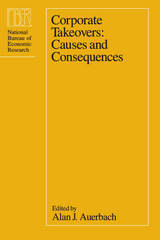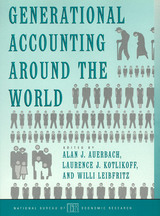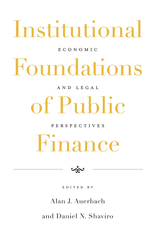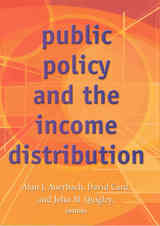

Combining the latest and most extensive country-by-country generational analyses with a comprehensive review of generational accounting's innovative methodology, these papers are a consummate resource for economists, political scientists, and policy makers concerned with fiscal health and responsibility.

Institutional Foundations of Public Finance integrates economic and legal perspectives on taxation and fiscal policy, offering a provocative assessment of the most important issues in public finance today.
Part I, an in-depth look at the tax reform debate, examines the differences between an income and a consumption tax and poses significant questions about the systematic transition from one to the other, as well as about its implementation. Part II takes a focused look at a broad range of fiscal topics, including fiscal federalism, corporate finance, and fiscal language. As a whole, the volume reflects a keen interest in analyzing real-world problems, including fiscal regimes and institutions, that have major policy implications.

"A significant piece of scholarship."—Peter Fuhrman, Forbes
"Accessible to interested laypersons and policy makers. . . . [A] thoroughly readable and informative book."—Gregg A. Jarrell, Journal of Economic Literature


This important contribution to tax analysis presents seven related theoretical essays that examine the effects of capital income taxation on the behavior of firms. It is divided into three sections, focusing on optimal tax design, firm financial policy, and inflation. Taken together, the essays demonstrate the powerful role taxes play in shaping the behavior of American corporations, and also provide insights into the difficult task of tax reform.
Alan Auerbach’s results suggest policies the government might adopt to promote the optimal accumulation of capital. He examines the implications for capital taxation of discrepancies between nominal depreciation rates and real economic depreciation, and suggests appropriate rules of thumb for determining when capital taxation is neutral among alternative investment projects. He also makes important contributions to the debate over the integration of corporate and personal taxes on capital income and to the behavioral puzzle of why corporations pay dividends to their shareholders.
READERS
Browse our collection.
PUBLISHERS
See BiblioVault's publisher services.
STUDENT SERVICES
Files for college accessibility offices.
UChicago Accessibility Resources
home | accessibility | search | about | contact us
BiblioVault ® 2001 - 2024
The University of Chicago Press









